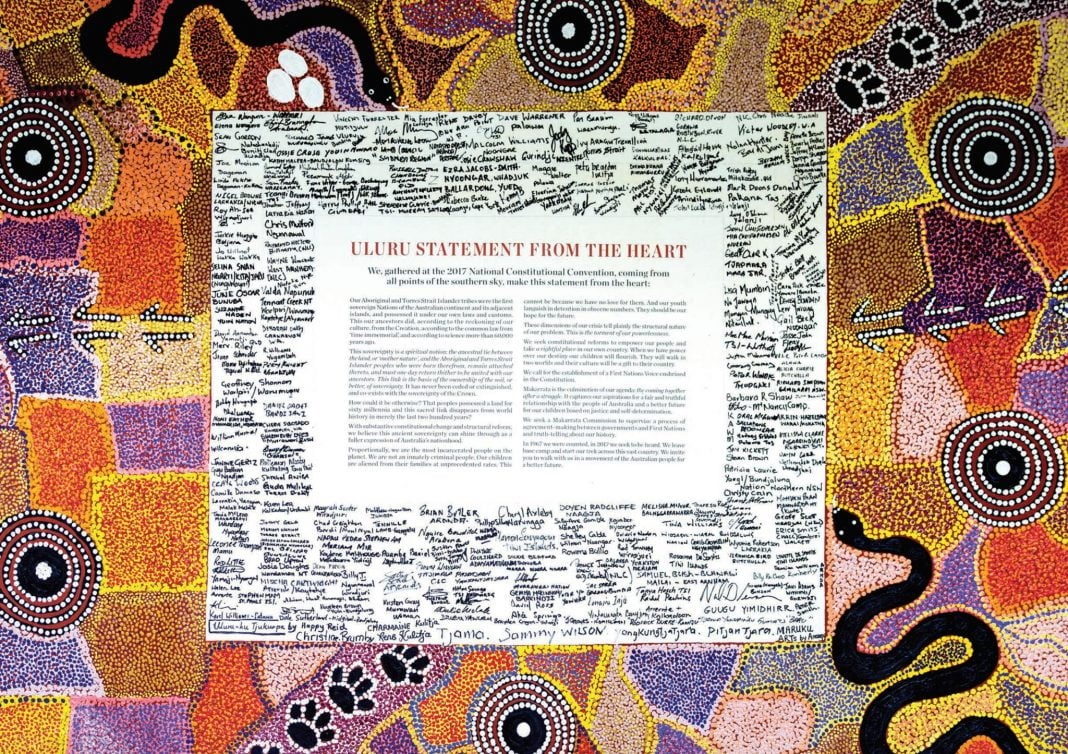Reconciliation

Pyrenees Shire Council acknowledge the people past and present of the Wadawurrung, Dja Dja Wurrung, Eastern Maar and Wotjobaluk tribes, whose land forms the Pyrenees Shire. We pay our respects to the customs, traditions and stewardship of the land by the Elders and people of these tribes.
Reconciliation
Reconciliation Australia defines Reconciliation as:
At its heart, reconciliation is about strengthening relationships between Aboriginal and Torres Strait Islander peoples and non-Indigenous peoples, for the benefit of all Australians.
“… A reconciled Australia is one where our rights as First Australians are not just respected but championed in all the places that matter …”Kirstie Parker – Board Member, Reconciliation Australia
For Aboriginal and Torres Strait Islander peoples, Australia’s colonial history is characterised by devastating land dispossession, violence, and racism. Over the last half-century, however, many significant steps towards reconciliation have been taken.
Reconciliation is an ongoing journey that reminds us that while generations of Australians have fought hard for meaningful change, future gains are likely to take just as much, if not more, effort.
In a just, equitable and reconciled Australia, Aboriginal and Torres Strait Islander children will have the same life chances and choices as non-Indigenous children, and the length and quality of a person’s life will not be determined by their racial background.
Our vision of reconciliation is based and measured on five dimensions: historical acceptance; race relations; equality and equity; institutional integrity and unity.
These five dimensions do not exist in isolation, but are interrelated. Reconciliation cannot be seen as a single issue or agenda; the contemporary definition of reconciliation must weave all of these threads together. For example, greater historical acceptance of the wrongs done to Aboriginal and Torres Strait Islander peoples can lead to improved race relations, which in turn leads to greater equality and equity. Read more on their website: www.reconciliation.org.au/what-is-reconciliation/
Pyrenees Shire Council Reconciliation Plan 2021-2024
The Reconciliation Plan 2021 - 2024 reaffirms and commits Council to actions for advancing reconciliation. We are proud to make a commitment to fully support reconciliation within our organisation and to influence reconciliation across the municipality. In this Plan we speak of partnership, recognition and empowerment and we commit to a truth-telling process to be honest about our past to support healing. View Council's Reconciliation Plan(PDF, 350KB).
NAIDOC Week 2024: 7 to 14 July 2024
National NAIDOC Week celebrations are held across Australia in July each year, to celebrate and recognise the history, culture and achievements of Aboriginal and Torres Strait Islander peoples. NAIDOC Week is an opportunity for all Australians to learn about First Nations cultures and histories and participate in celebrations of the oldest, continuous living cultures on earth. You can support and get to know your local Aboriginal and/or Torres Strait Islander communities through activities and events held across the country.
Voice to Parliament Referendum Information
In late 2023 Australians took part in a referendum about changing the Constitution to establish an Aboriginal and Torres Strait Islander Voice.
Pyrenees Shire Council respects the democratic process and the right of individuals to make their own choice.
We encourage members of our community to access accurate and comprehensive information.
You can learn more at the Australian Government's Recognition through a Voice website.
Aboriginal and Torres Strait Islander Protocol Guide - 2021
The Aboriginal and Torres Strait Islander Protocol Guide is to provide Pyrenees Shire Council officers and Councillors with guidance regarding engagement with Aboriginal and Torres Strait Islander peoples. It provides practical advice on the appropriate use of terminology when engaging with the Aboriginal and Torres Strait Islander community and assists in understanding culturally significant protocols when delivering programs and services within the Pyrenees Shire. View the Protocol Guide(PDF, 879KB).
Koori Art Trail
Beaufort is home to the Koori Art Trail, a walk populated with Indigenous art. Take a short walk around the lake or do a virtual lap with us to view the works.
Registered Aboriginal Parties
Visit the website for the Registered Aboriginal Party that corresponds to that Country to learn more about local Aboriginal culture and history, here are a few -
Aboriginal Languages of Victoria
View the map of the Aboriginal Languages in Victoria(PDF, 216KB).
Artwork
The artwork titled 'My Totem Brewarrina' displayed on this page was created by Bushka. The painting represents the artist's totem animal. Bushka writes of the work:
'(the Brewarrina) is one of my family totems and I am on a journey to look for the rest of my family. When you are given a totem you grow up and learn about what they eat, where they drink. In my culture, I have learnt that I can't eat my totem but I can give it to someone that doesn't belong to that totem and he will give me his totem to eat. This is my dreaming, this is my story'.
Uluru Statement of the Heart
The Uluru Statement from the Heart is the fullest expression of Aboriginal and Torres Strait Islander desires for substantive reform to the Australian Constitution.
The statement, released in 2017, proposed a permanent first nations Voice to Parliament, and a Makarrata Commission to engage in agreement-making and to sponsor truth-telling about the past.
More information on the statement can be found here
